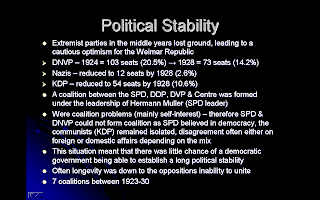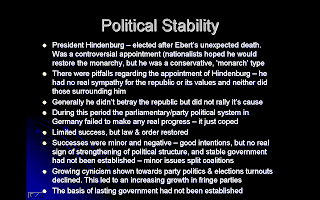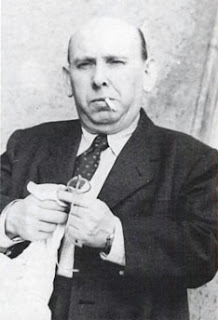
It is worth mentioning an article in October 2010 issue called 'Mussolini Frustrated'. It is about the recent release of the first part of the diary of Mussolini's main lover Claretta Petacci. Admittedly the first part of the article focuses on Mussolini's love life, affairs, ect., but the middle bit looks at his interactions with Hitler and his own prejudices that had a hand in the creation of WW2. There is also a handy timeline entitled 'Rise and Fall of a duce'. This sort of information interconnects other activity in Europe, and activity in Germany, thus emphasising that it was not a localised issue.



























































